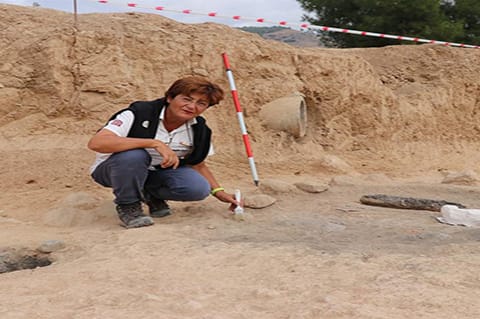One of Turkey´s many UNESCO World Heritage sites has recently excavated a Necropolis, which sheds new light on the site of Hierapolis-Pamukkale, and how it´s history was changed and shaped by this ancient structure. The ´Cotton Castle´ as it´s translated is situated in the south western province of Denizli and with this new discovery it´s now thought the known history of the site dates back around 500 years.
Believed to founded at the beginning of the 2nd century BC, until now, Hierapolis-Pamukkale was dubbed as the ´Holy City´ due to its temples and numerous religious structures that were ordered to be built at the time of founding the city by one of the Pergamon Kings, Eumenes the second.
A classical Archaeology professor, Grazia Semeraro, based at Italy´s Salento University was more than excited as the discovery ´unearths a new chapter´ in the history of this Ancient site, and ´demonstrates that the settlement started some centuries before the Greek foundation in the Hellenistic period´. Grazia goes on to add ´they are now in the area of the ancient necropolis of the iron-age, and it will permit us to better the know the history of the region, the people living here before the Greeks and the Romans´.
Originally part of the excavation work was carried out by the museum of Hierapolis two years ago, but Grazia´s aim is to ´continue the excavation throughout this year´ adding that the ´results were very important as they can better understand the history of the region and it´s people´, educating the modern society on their ancestry and the place in which they live.





